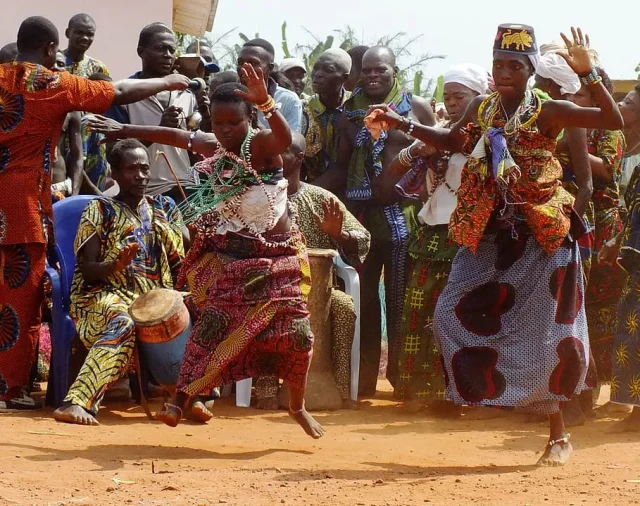Benin is a religiously diverse country, known for its peaceful coexistence of different faiths. Here’s a breakdown of the major religions in Benin:
📊 Religious Composition (Latest Estimates – 2025)
| Religion | Approximate % of Population |
|---|---|
| Christianity | ~48% |
| Islam | ~28% |
| Traditional Religions (Vodun/Voodoo) | ~23% |
| Other/None | ~1% |
✝️ Christianity (Largest Group)
- Practiced mainly in the South (Cotonou, Porto-Novo, Ouidah)
- Major denominations:
- Roman Catholic
- Celestial Church of Christ
- Methodist, Baptist, Pentecostal, and Evangelical groups
☪️ Islam
- Concentrated mostly in the North and in urban centers
- Mostly Sunni Muslims
- Many Muslims in Benin also practice traditional customs alongside Islam
🧿 Traditional African Religions (Vodun/Voodoo)
- Officially recognized and deeply rooted in Benin’s cultural identity
- Particularly strong in Ouidah, Abomey, and among the Fon and Yoruba peoples
- Vodun includes ancestor worship, spirit rituals, fetishism, and nature worship
📅 January 10 is celebrated as National Vodun Day in Benin, reflecting the country’s respect for its ancestral spirituality.
🤝 Religious Coexistence
Benin is officially secular and guarantees freedom of religion in its constitution. Interfaith marriages and mixed communities are common, and religious conflicts are rare.
📌 Summary
Benin is a religious mosaic where Christianity, Islam, and Vodun coexist, often blending together in daily life. This diversity is seen as a source of national strength and cultural richness.
Would you like more on how Vodun is practiced, or how religion influences Beninese politics or festivals?
















